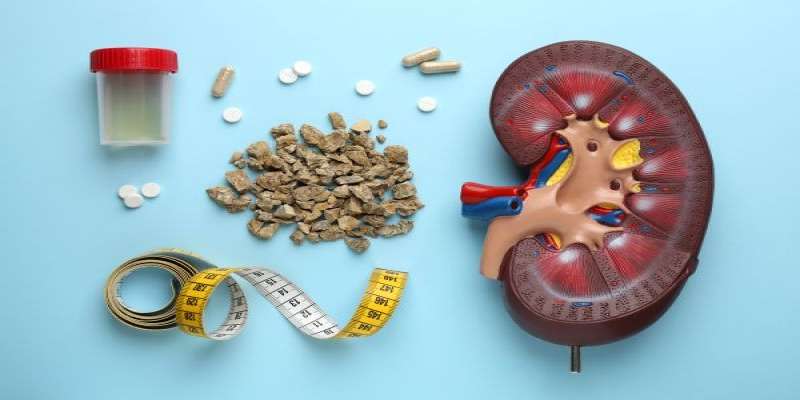
Understanding Kidney Stones
Kidney stones are not just excruciatingly painful; they can recur without proper preventive measures. Dr. Brian Eisner, co-director of the Kidney Stone Program at Harvard-affiliated Massachusetts General Hospital, warns that about half of individuals who have experienced a kidney stone will face another within a decade or two if preventative actions aren’t taken.
Origins of Kidney Stones
Kidney stones form when substances like calcium, oxalate, and uric acid become concentrated enough to crystallize within the kidneys. Typically, 80% to 85% of kidney stones are composed of calcium, with the remainder being uric acid stones, more prevalent in individuals with low urine pH levels.
Symptoms and Manifestations
When these stones dislodge and travel down the ureter, they obstruct the urine flow, leading to severe symptoms. These can include flank pain, blood in the urine, nausea, vomiting, frequent urination, bladder pressure, and groin pain. Dr. Eisner advises seeking medical attention if any of these symptoms arise.
Navigating the Passage
Once a kidney stone moves into the bladder, the pain usually diminishes rapidly. However, the passage of stones may take weeks to months, depending on their size and number. Over-the-counter pain relievers like ibuprofen, acetaminophen, or naproxen can help manage discomfort during this period. Additionally, alpha blockers prescribed by a physician can relax ureter muscles, facilitating quicker and less painful stone passage.
Preventive Measures: 5 Essential Tips
-
Stay Hydrated: Maintaining adequate hydration is crucial. Studies indicate that individuals producing 2 to 2.5 liters of urine daily are 50% less likely to develop kidney stones. Aim for 8 to 10 8-ounce glasses of water daily.
-
Opt for Calcium-rich Plant Foods: Incorporating calcium-rich plant foods such as yogurt, soy products, beans, lentils, and seeds into your diet can help. Dietary calcium binds oxalate in the intestines, reducing its absorption and urinary concentration.
-
Leverage Citrus Fruits: Citrate, found in citric acid, binds to calcium and inhibits stone formation. Daily consumption of lemon juice concentrate diluted in water or the juice of two lemons can increase urine citrate, lowering the risk of kidney stones.
-
Monitor Sodium Intake: High sodium intake can elevate urinary calcium levels, potentially triggering kidney stone formation. Federal guidelines recommend limiting daily sodium intake to 2,300 milligrams to mitigate this risk.
-
Limit Animal Protein: Excessive consumption of animal protein, including meat, eggs, and seafood, can increase the likelihood of kidney stone formation. If you’re prone to kidney stones, restrict daily meat intake to a portion no larger than a pack of playing cards.
By incorporating these preventive measures into your lifestyle, you can significantly reduce the risk of developing kidney stones and minimize the likelihood of recurrent episodes. Prioritize your urinary health today for a stone-free tomorrow.
FAQs
What causes kidney stones? Kidney stones can form due to various factors, including dehydration, high dietary intake of oxalate or calcium, certain medical conditions, and genetic predisposition.
What are the symptoms of kidney stones? Common symptoms of kidney stones include severe pain in the back or side, nausea, vomiting, blood in the urine, and frequent urination.
How are kidney stones diagnosed? Diagnosis often involves imaging tests such as CT scans or ultrasounds, as well as urine analysis to detect blood or mineral levels indicative of stone formation.
What treatment options are available for kidney stones? Treatment may include pain management, hydration therapy, medications to facilitate stone passage, or medical procedures like lithotripsy or surgical removal.
Can kidney stones be prevented? Yes, adopting lifestyle changes such as staying hydrated, following a balanced diet, and maintaining a healthy weight can help prevent kidney stone formation.
Are there natural remedies for kidney stones? Yes, natural remedies like dietary modifications, increased fluid intake, and certain herbal supplements may aid in the prevention and treatment of kidney stones.


